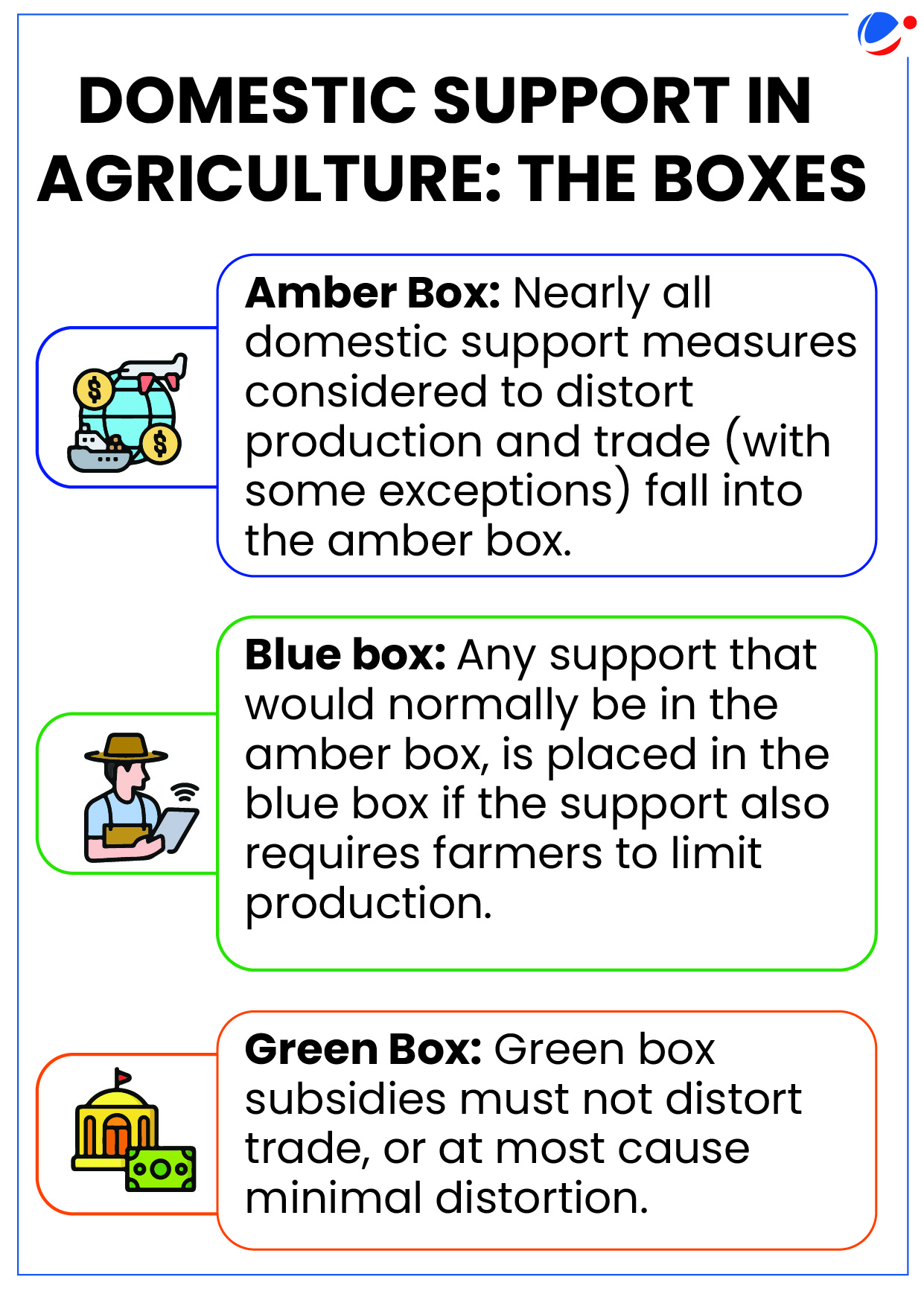Why in the news?
WTO's 13th Ministerial Conference (MC13), Abu Dhabi concluded without a permanent solution to the public stockholding (PSH) issue, a demand raised prominently by India.
About PSH Policy
- Objective: The PSH makes it possible for the government to procure crops from farmers at MSP, and store and distribute these food grains to the poor.
- De minimis limits: Under global trade norms, a country's subsidy bill should not breach the limit of 10 % (for developing countries) and 5 % (for developed countries) of the value of production.
- Currently, it is calculated as the reference price for 1986-88.

Global Divide over PSH
- Developing Countries: Apart from increasing this de minimis limit, India and developing countries have asked for amendments in the formula to calculate the price support subsidies given to farmers for government procurement.
- Developed Countries: Most developed countries claim that PSH is market-distorting and that there should be no export restrictions.
Peace Clause & India's Stand
- Peace Clause: WTO at the Ninth Ministerial Conference (MC9) in Bali and agreed to a "peace clause" as an interim solution for the public stockholding for food security.
- It was agreed that the "peace clause" would remain in force till MC 11. However, due to non-consensus among the members, it was extended.
- India's Demand: India is pressing for a permanent solution to the issue of public stockholding (PSH).
- As part of a permanent solution, India has asked for measures like amendments in the formula to calculate the food subsidy cap.
Why Permanent Solution to PSH is Important for India?
A permanent solution to PSH is crucial for India and other developing countries, as it would legitimize higher subsidies for food stockholding programmes. This would protect the interests of the poor and vulnerable farmers and take care of its domestic food security needs.



